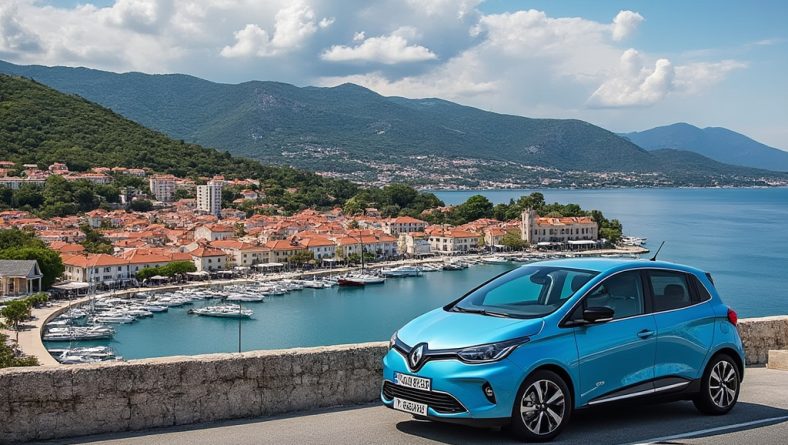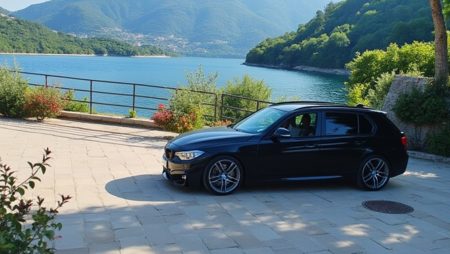Comprehensive Guide to Car Hire in Croatia
Why Choose Car Hire in Croatia?
Car hire in Croatia is the ideal way to explore this beautiful Mediterranean country, known for its stunning coastline, historic cities, and national parks. While public transportation is available, renting a car offers the freedom to explore at your own pace and reach destinations off the typical tourist path.
Benefits of Hiring a Car in Croatia:
- Flexibility: Create your own itinerary and schedule.
- Comfort: Travel in a private vehicle suited to your preferences.
- Accessibility: Reach remote beaches, villages, and natural attractions.
- Scenic Drives: Enjoy breathtaking routes along the Adriatic coast and through the countryside.
Requirements for Car Rental in Croatia
Before you hire a car in Croatia, ensure you meet the following requirements:
- Age Limit: Minimum age is typically 21 years old. Drivers under 25 may incur a young driver surcharge.
- Driving License:
- Valid National License: Must have been held for at least one year.
- International Driving Permit (IDP): Required if your license is not in the Latin alphabet.
- Identification: A valid passport or national ID card.
- Credit Card: For security deposit and payment. Debit cards may not be accepted.
- Insurance: Basic insurance is usually included; consider additional coverage for extra protection.
Choosing the Right Rental Car
When considering car hire in Croatia, think about the following:
- Vehicle Size: Compact cars are ideal for city driving and narrow streets; larger vehicles like SUVs are suitable for families or mountainous regions.
- Fuel Efficiency: Diesel and petrol options are available; diesel may be more fuel-efficient for long distances.
- Transmission: Both manual and automatic vehicles are available; automatic cars may be more expensive and should be booked in advance.
- Additional Features: GPS navigation, child seats, and Wi-Fi hotspots can be added to your rental.
Understanding Rental Costs and Insurance
Rental Costs
- Base Rate: Varies depending on vehicle type, rental duration, and season.
- Additional Fees: Airport surcharge, young driver fee, additional driver fee, one-way rental fee.
- Taxes: VAT is typically included in the quoted price.
Insurance Options
- Collision Damage Waiver (CDW): Reduces your financial liability in case of damage.
- Theft Protection (TP): Covers loss due to theft.
- Third-Party Liability Insurance: Mandatory coverage for damages to others.
- Super CDW/Zero Excess: Further reduces or eliminates the deductible.
- Personal Accident Insurance (PAI): Covers medical expenses for the driver and passengers.
Tip: Review the insurance policy carefully when arranging your car hire in Croatia and consider additional coverage for peace of mind.
Driving in Croatia: What to Expect
Driving Laws and Regulations
- Drive on the Right: Same as most European countries.
- Seat Belts: Mandatory for all passengers.
- Speed Limits:
- Urban areas: 50 km/h (31 mph)
- Open roads: 90 km/h (56 mph)
- Expressways: 110 km/h (68 mph)
- Highways: 130 km/h (81 mph)
- Mobile Phones: Use of handheld devices while driving is prohibited; hands-free devices are allowed.
- Alcohol Limit: 0.05% blood alcohol concentration for drivers over 24; zero tolerance for drivers under 24.
- Lights: Dipped headlights required at night and during winter months (last Sunday in October to last Sunday in March).
Required Documents
- Driver’s License and IDP (if applicable)
- Rental Agreement
- Vehicle Registration and Insurance Papers
Tip: Always carry these documents while driving your rental car in Croatia.
Navigating Croatian Roads and Traffic
Road Conditions
- Highways (Autocesta): Modern and well-maintained; tolls apply.
- Regional Roads: Generally in good condition; may be narrow in rural areas.
- Mountain Roads: Winding and scenic; caution is advised.
Traffic and Signage
- Traffic: Can be heavy during peak tourist season, especially along the coast.
- Road Signs: In Croatian with international symbols; distances in kilometers.
- GPS Navigation: Highly recommended; ensure maps are up to date.
Driving Etiquette
- Local Driving Habits: Generally adhere to rules, but be cautious of sudden stops or turns.
- Pedestrians and Cyclists: Common in urban areas; always yield at crosswalks.
Cross-Border Travel with Your Rental Car
Neighboring Countries
- Common Destinations: Slovenia, Bosnia and Herzegovina, Montenegro, Hungary, Serbia, Austria, Italy.
- Rental Agency Policies: Not all companies allow cross-border travel; permission is required.
- Additional Fees: Cross-border fees or additional insurance may apply.
- Insurance: Ensure your coverage is valid in the countries you plan to visit.
Border Crossing Requirements
- Valid Passport and IDP (if applicable)
- Green Card Insurance: Proof of insurance valid in the destination country.
- Vehicle Documents: Rental agreement indicating permission for cross-border travel.
Tip: Inform the rental company in advance to arrange necessary documentation for cross-border car hire in Croatia.
Fueling Up: Gas Stations and Fuel Types
Availability
- Gas Stations: Widely available in urban areas and along main roads; less frequent in remote regions.
- Operating Hours: Many are open 24/7, especially along highways; others may close by 10 PM.
Fuel Types
- Diesel (Dizel): Common and cost-effective.
- Unleaded Petrol (Benzin): Available in 95 and 98 octane.
- LPG (Autoplin): Available at select stations.
Payment Methods
- Cash: EURO (EUR) is the local currency.
- Credit Cards: Widely accepted at gas stations.
Parking in Croatian Cities
Urban Areas
- Parking Zones: Color-coded zones with varying time limits and fees.
- Red Zone: Short-term parking, higher fees.
- Yellow Zone: Medium-term parking.
- Green Zone: Long-term parking, lower fees.
- Payment: Meters, pay stations, or mobile apps; fines apply for non-payment.
- Parking Garages: Available in major cities like Zagreb, Split, and Dubrovnik.
Tips for Parking
- Avoid Illegal Parking: Cars may be towed or wheel-clamped.
- Secure Valuables: Do not leave belongings visible in the car.
- Hotel Parking: Many accommodations offer parking facilities; inquire when booking.
Top Destinations to Visit by Car
1. Dubrovnik
- Highlights: Historic Old Town, city walls, cable car to Mount Srđ.
- Experience: Explore the “Pearl of the Adriatic” and its medieval charm.
2. Split
- Attractions: Diocletian’s Palace, Riva Promenade, Marjan Hill.
- Activities: Enjoy the vibrant city life and nearby beaches.
3. Plitvice Lakes National Park
- Features: UNESCO World Heritage Site with cascading lakes and waterfalls.
- Access: Easy drive from Zagreb or Zadar.
4. Istrian Peninsula
- Destinations: Rovinj, Pula, Poreč.
- Experience: Explore Roman ruins, picturesque towns, and enjoy local truffles and wine.
5. Zagreb
- Highlights: Upper Town, St. Mark’s Church, Museum of Broken Relationships.
- Activities: Discover Croatia’s capital with its rich history and culture.
6. Zadar
- Attractions: Sea Organ, Greeting to the Sun, Roman Forum.
- Experience: Blend of ancient history and modern installations.
7. Hvar Island
- Access: Car ferries available from Split.
- Features: Lavender fields, nightlife, and beautiful beaches.
FAQs about Car Hire in Croatia
1. Is it safe to drive in Croatia?
Yes, driving in Croatia is generally safe. Roads are well-maintained, and drivers typically follow traffic laws. However, exercise caution during peak tourist season due to increased traffic.
2. Do I need an international driving permit (IDP)?
If your driver’s license is not in the Latin alphabet or issued outside the EU, an IDP is required when you hire a car in Croatia.
3. Can I rent a car without a credit card?
Most rental companies require a credit card for the security deposit. Some may accept debit cards, but options are limited, and additional conditions may apply.
4. Are automatic cars available for rent?
Yes, automatic vehicles are available but may be in limited supply and more expensive. It’s advisable to book in advance if you prefer an automatic car.
5. What are the fuel prices in Croatia?
Fuel prices fluctuate but are generally in line with other European countries. Diesel is often slightly cheaper than petrol.
6. Can I cross the border with my rental car?
Yes, but you must inform the rental company in advance and ensure you have the necessary documentation and insurance. Additional fees may apply for cross-border car hire in Croatia.
7. Are there toll roads in Croatia?
Yes, Croatia has a network of toll highways (Autocesta). Tolls can be paid in cash (EUR) or by credit card. Keep some cash handy for tolls.
8. What should I do in case of an accident or breakdown?
Contact your rental company immediately for assistance. They will provide guidance and support, including roadside assistance if included in your rental agreement.
9. Is GPS navigation reliable in Croatia?
Yes, GPS navigation is generally reliable. Ensure your device has up-to-date maps. Consider offline maps as a backup in areas with poor signal.
10. Do I need to pay for parking?
Yes, in cities and popular tourist areas, paid parking is common. Always check signs for parking regulations and fees to avoid fines.
Final Tips for a Safe Journey
- Plan Your Route: Research your destinations and routes, especially when traveling to remote areas.
- Stay Informed: Check for any travel advisories or local regulations.
- Respect Local Laws: Adhere to speed limits and traffic laws.
- Be Prepared: Carry a first-aid kit, reflective vest, and warning triangle (usually provided with the rental car).
- Enjoy the Journey: Take time to experience Croatia’s rich culture, cuisine, and natural beauty.
Embark on your Croatian adventure with confidence by arranging your car hire in Croatia through 365carhire.com. Enjoy the freedom to explore this captivating country at your own pace!





